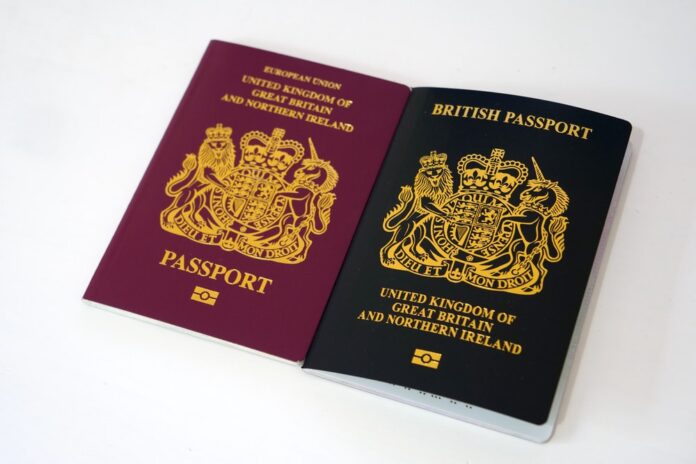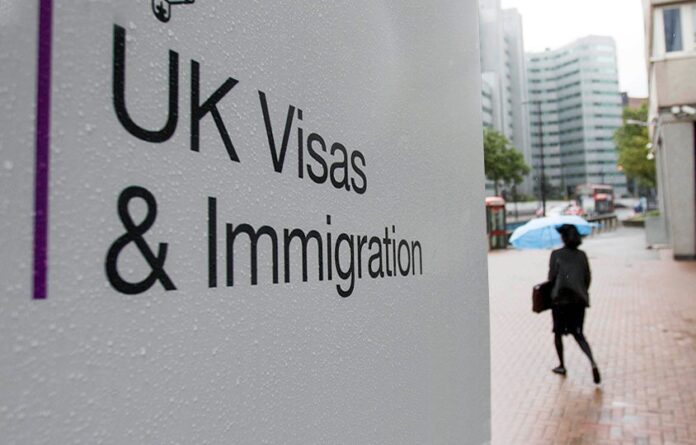To make the process easier and more transparent, the UK immigration office gives specific timeframes on the immigration process. While time will vary depending on multiple factors, applicants can do their due diligence before submitting an application.
In this 2024 guide, we will help you determine how long the UK immigration process takes. So don’t go anywhere as we’ll start right now.
What Is the UK’s Standard Processing Time?
To immigrate to the UK, applicants need to determine the application type. Each application type comes with different timeframes, so that’s something to take into consideration.
The standard processing time doesn’t take into account the time it takes to get issues a Biometric Residence Permit. You can expect anywhere between seven and twelve days for that.
Nonetheless, the standard processing time for each application type goes as follow:

Applying For Visa Outside the UK
This is the most common application type and the UK immigration office gives three timeframes when the decision will be made. Bear in mind, this guide doesn’t include the time it takes for you to get the necessary paperwork to apply for a Visa.
If you’re applying outside the UK, then the three timeframes are 3 weeks, 6 weeks, and 12 weeks. The Home Office also aims to get the majority of immigration processes done within 3 weeks. 8% of applicants can expect a decision within 6 weeks, while the remaining 2% within 12 weeks.
Going by logic, you can expect a decision to be made within the first timeframe – 3 weeks.
Applying For Settlement Outside the UK
The next application type is applying for a settlement outside the UK. This is much different than the previous application type as that type simply states that you’re applying for a Visa. This type, on the other hand, is meant to give you settlement status. Naturally, expect to wait much longer for a decision to be made by the Home Office.
The Home Office gives two timeframes on immigration applicants. The first, and the one that 98% of applicants get approved, is 12 weeks. If you aren’t given an application date by then, the next timeframe is 24 weeks.

Applying To Remain As A Worker
The next application type is less rigorous than the previous one. The UK accepts workers from all parts of the world. But when their worker status expires, they need to go through the process again. This takes 8 weeks to complete. Another thing to note is that the Home Office considers a week to be five working days.
So applicants need to get this one over the line before their worker visa expires. This will make sure they can continue working without needing to leave the country.
Applying for ILR (Indefinite Leave to Remain)
This is the last application type and one that takes the longest to process. Since this type doesn’t restrain you with how long you can stay in the UK as an immigrant, the process is much more rigorous and takes longer to complete. So, expect a decision within six months.
All application types require different paperwork, forms, and all kinds of shenanigans that can easily make your head spin. That’s why you’re advised to go with an immigration lawyer that can explain the process and guide you to success.
If you’re interested in that, make sure to visit https://optimuslaw.co.uk/
How To Speed up the Process

Plenty of factors impact the Home Office’s decision on how long the immigration process will last. While we’ve given you the standard processing times, many applicants, unfortunately, take much longer than that.
As we’ve mentioned numerous times, it depends on a few factors whether or not your application is processed within the standard timeframe. The biggest factor is missing information. If the Home Office doesn’t have the necessary information in regards to your immigration Visa, then expect delays. Another factor is an incomplete application. The last factor is if the Home Office deems your case to be complex.
In all three scenarios, expect the immigration process to take much longer.
So that begs the question, how do you make sure that isn’t the case and speed up the process? Fortunately, we have the answers you’re looking for.
Every applicant must submit their application before their current status expires. This eliminates waiting, makes sure you can work, and it doesn’t prevent you from leaving the country. Another thing to make sure of is that your application is fully completed. If you leave our specific pieces of information, then you will face timeframe issues. Don’t give the Home Office excuse to delay your application; fill out the correct information.
Since the application process contains plenty of steps, make sure all steps are covered and all necessary documents, such as photographs and evidence, are fully submitted. And lastly, make sure to sign all the forms, documents, and other pieces of information that require your signature.
If you do all that, then you make sure the process doesn’t get delayed.
What Happens If You Get Delayed?

If you do end up getting delayed, or there is a problem with your application, then the Home Office will contact you with and detailed instructions on what to do. Not only that, but they will tell you what the problem is and why your UK immigration status is delayed.
In most cases, the timeframe will be moved from 8 to 12 weeks. It isn’t uncommon for your immigration application to be delayed up to six months.
In that time, you need to contact an immigration lawyer and get them up to speed to help you make your case.
Conclusion
Immigrating to the UK is straightforward and requires following the appropriate channels. In most cases, you can expect a decision to be made on your immigration application between 8 weeks and 6 months. Depending on the application type and how accurate you fill out the application, this timeframe will vary for most people. But it’s a good starting point for applicants to know how long the immigration process takes.




